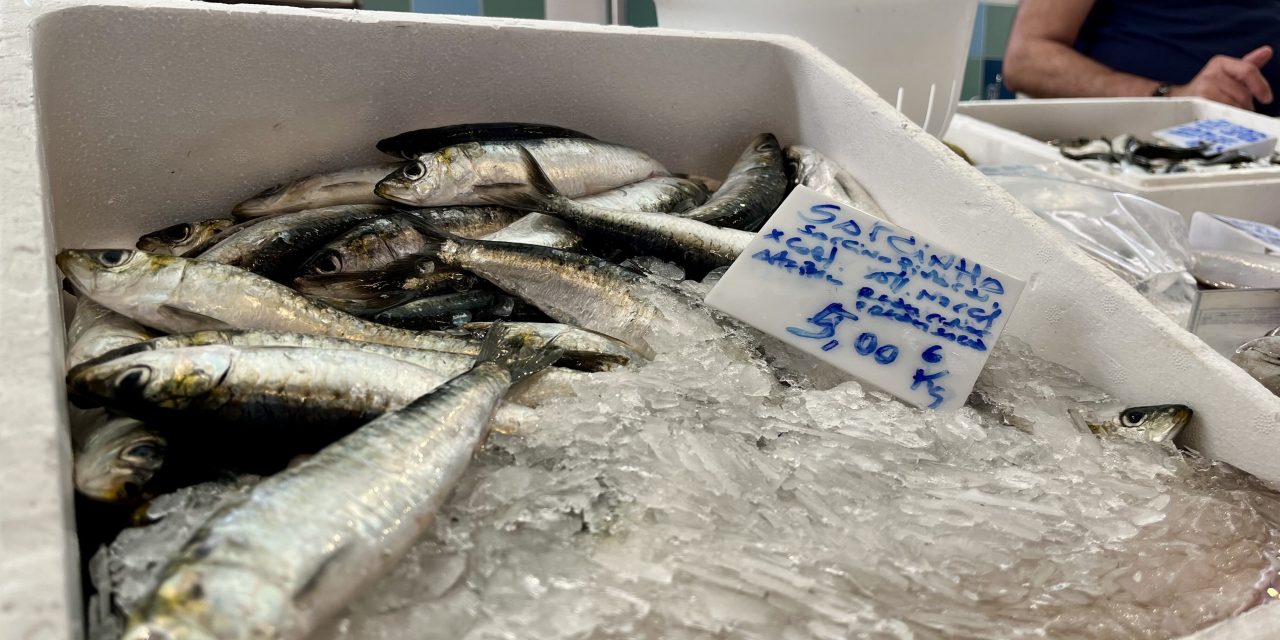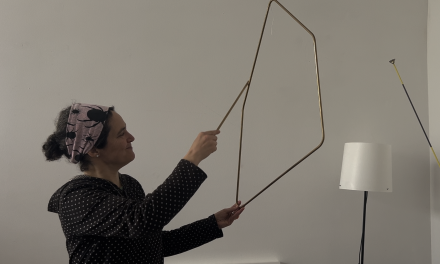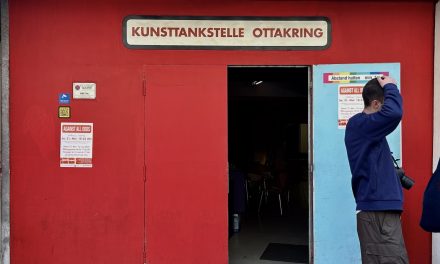In 2009 the Portuguese sardine stock nearly collapsed due to years of overfishing and environmental changes. Thanks to stricter regulations the stock is slowly getting back on track. Great news for the people and the fish, but some still argue that the crisis is yet to be over.
A lukewarm sea breeze whizzes through the big branches of a jacaranda tree. Underneath there is a group of tourists using its azure covers as a parasol, providing some shade from the beaming Portuguese sun. It is late May and summer is about to fully embrace the city of Lisbon. And with summer around the corner is also one of the city’s biggest celebrations, Festas dos Santos Populares (The Popular Saints’ Festival). The colorful festival takes place every year during the first two weeks of June and finishes with the big Saint Anthony’s feast day on June 13th. And for this feast there is only one star of the show.
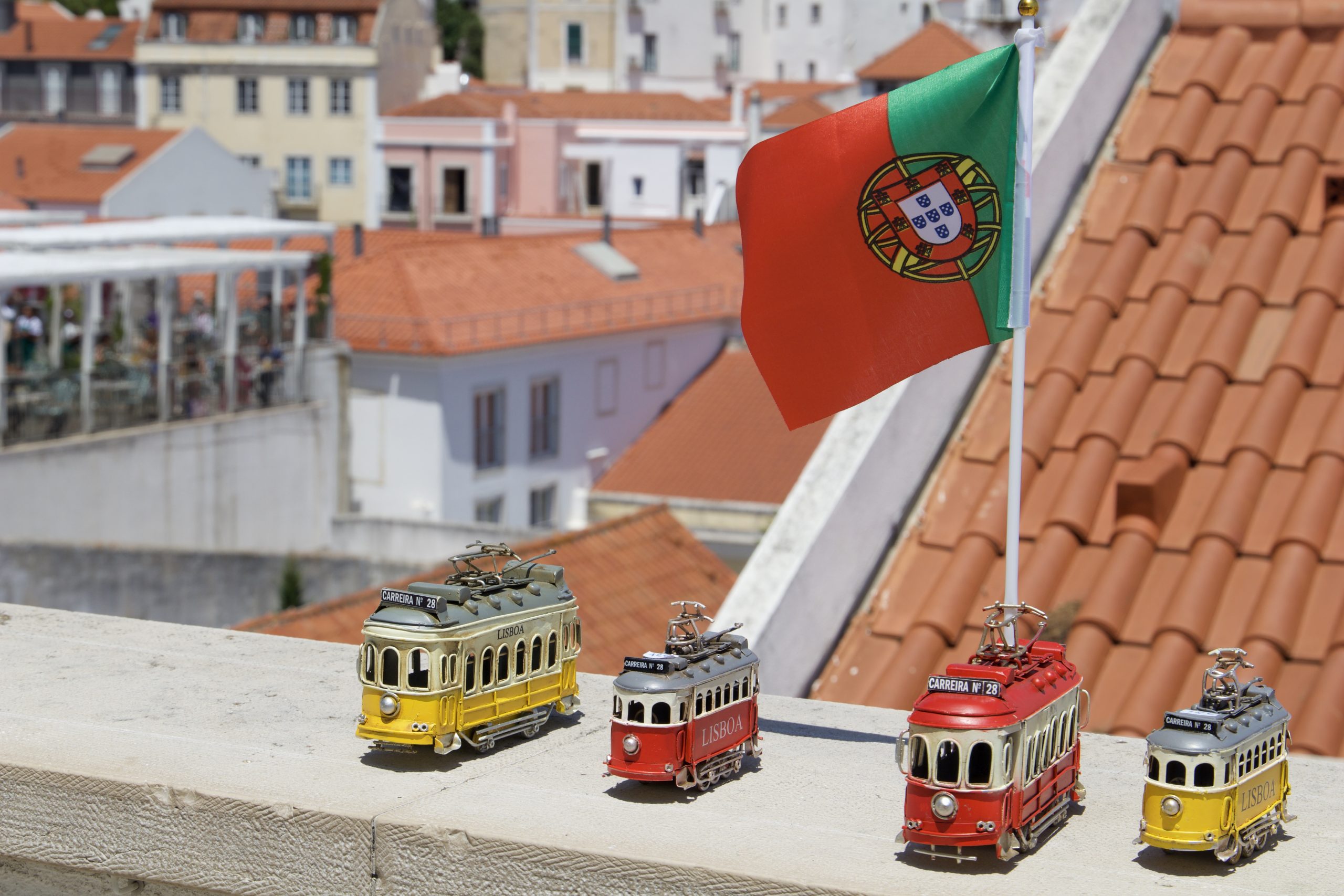
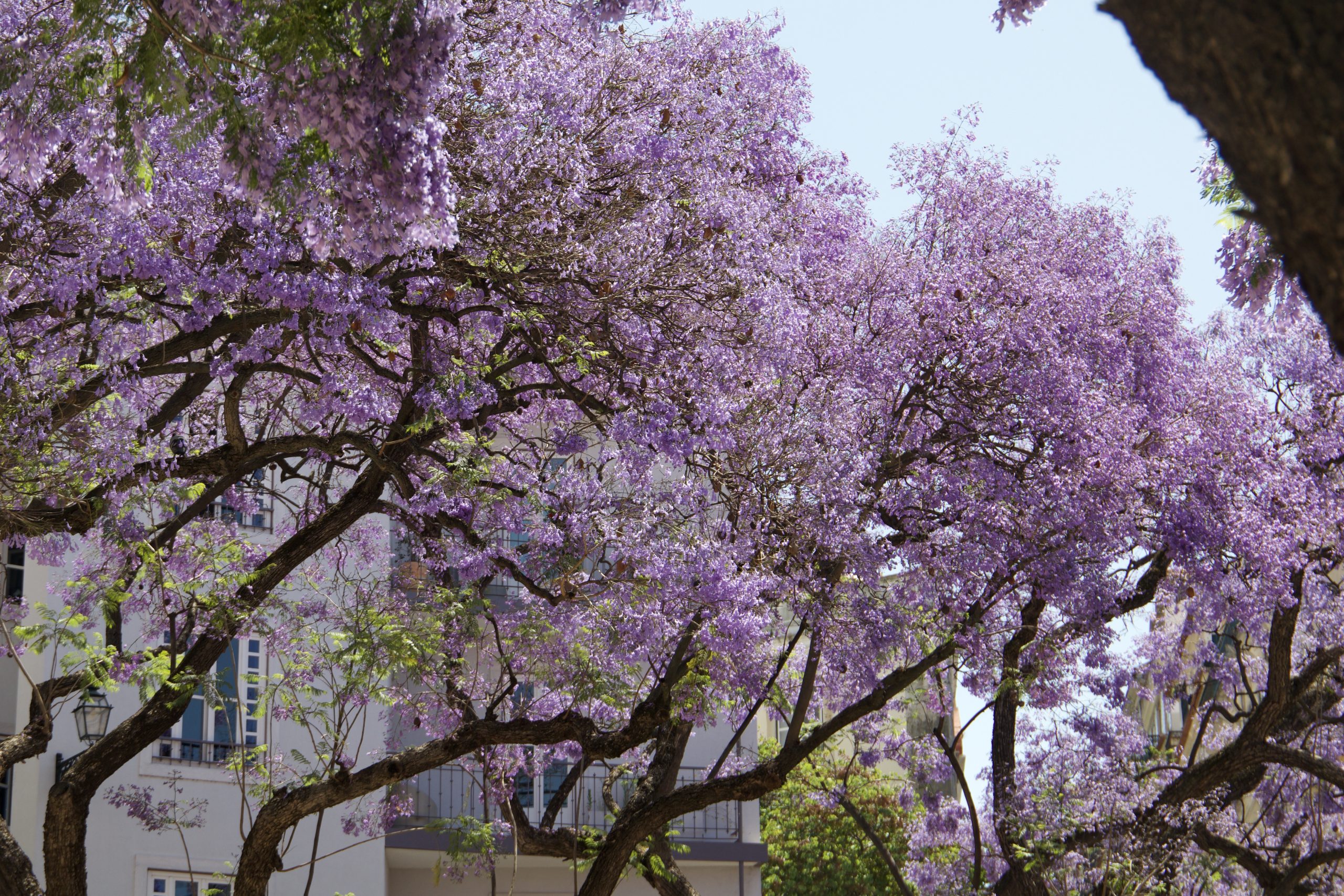
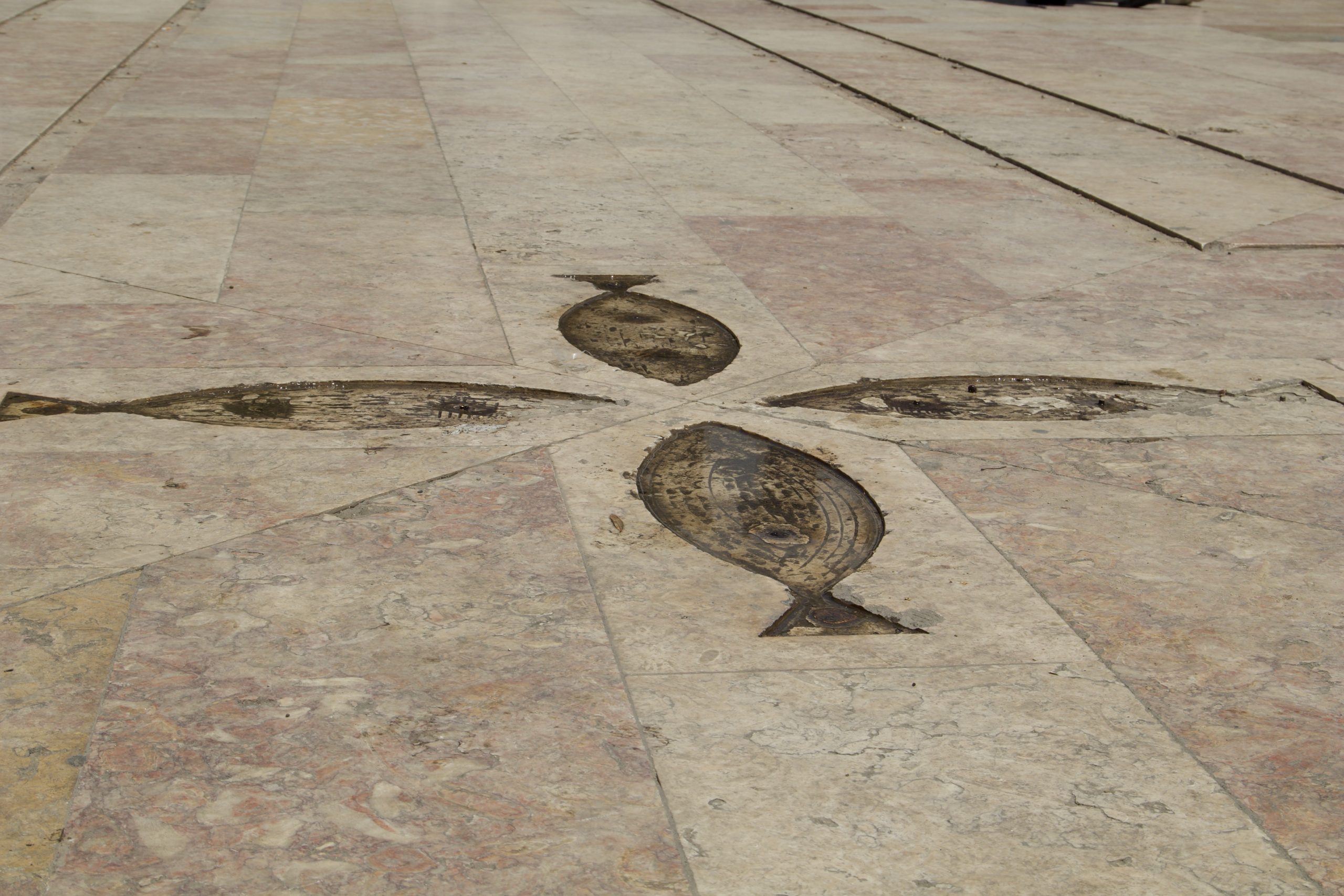
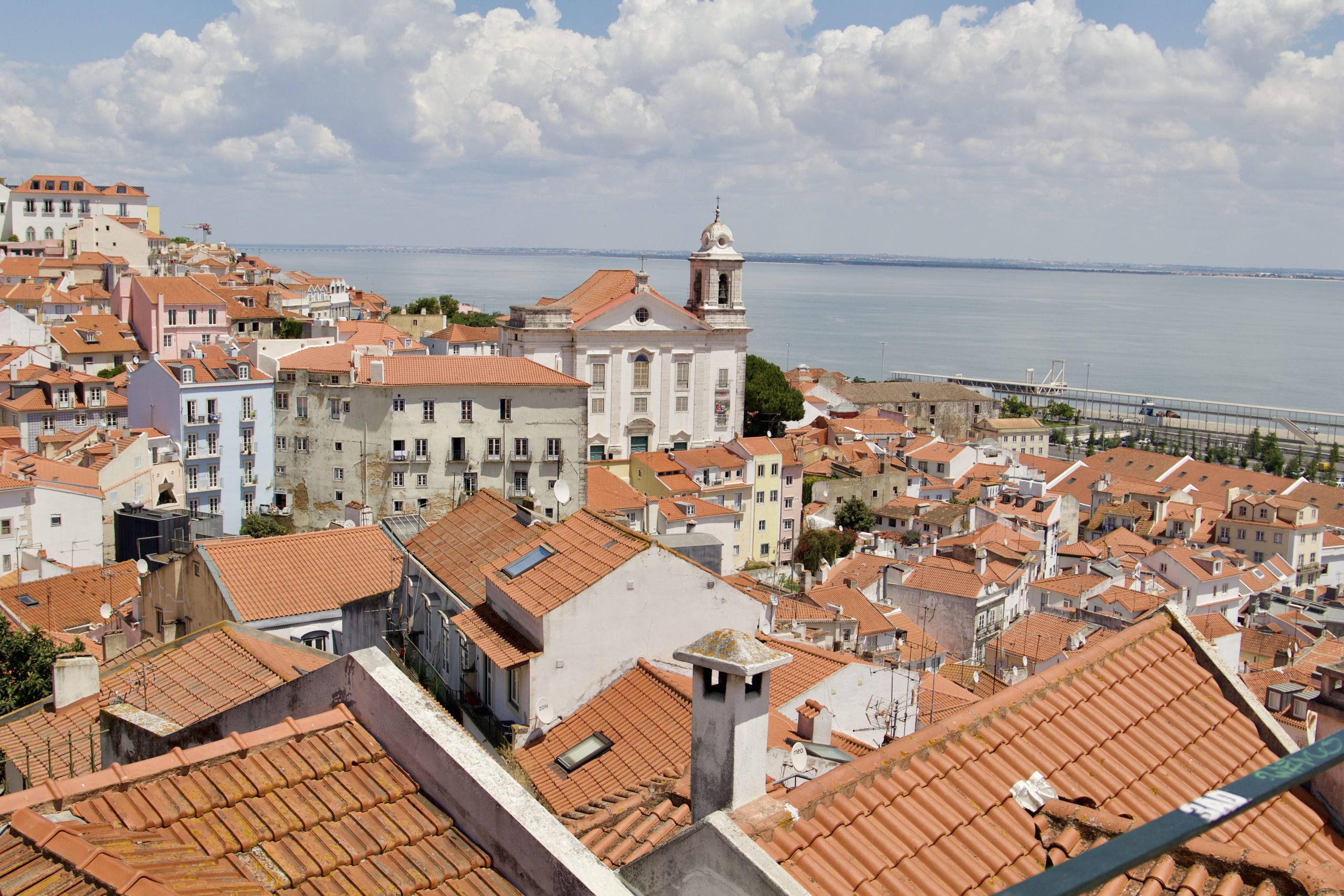
“The sardine is the queen! She is just exquisite”, says Tiago Soares Ribiero as he places down three oval ceramic plates on the small dining table. He is one of the owners of the family-owned Miss Can, a fish cannery store and restaurant, situated on one of Lisbon’s seven hills in the Santa Cruz neighborhood. The three plates contain some true Portuguese sea treasures: stuffed squid, mackerel in a mustard sauce and of course, the queen, sardines in olive oil. “The Portuguese people has embraced the canned fish. When it has been hard times, this has been saving us. People in Portugal have another understanding of seafood and sardines are our truth”, Tiago says.
The relationship between the sardines and the Portuguese goes way deeper than it just being a popular food for celebrations. It all goes way back to the Romans who were the first settlers of Lisbon in 19 BCE. They discovered that there was an abundance of the species along the coastline of Lisbon. It is a great source of protein and minerals, and the abundance of the fish made it both an affordable and healthy choice for everyday people. That was centuries ago, but the interest for the fish never died down and now it holds an almost icon-like status in the country. Everywhere you go you will see it. It is integrated in the art, souvenir shops, engraved in the streets and portrayed on the various ceramic-clad buildings.
"The sardine is the queen!"
But when there is seemingly an abundance of a resource, it is bound to occur some problems of ignorance. Portugal shares its fishing waters with Spain and the two countries also share the quota made by the EU of sardines they can fish, with Portugal having two thirds of it. In the 1980s the two countries fished a total of 200,000 tons of Sardines annually off the coast of the Iberian Peninsula. Absurdly large amounts of fish continued to be fished annually until 2009, when it had to stop due to a near collapse of the iconic species. The EU then together with the Portuguese government, started to implement stricter fishing regulations between 2014 and 2017. Although the sardine stock has since slowly been getting back on track, there are still a lot of sensitivities around the issue of sardine fishing. It is a difficult problem to navigate being that the sardines and the industry plays such a vital part of Portugal’s culture and economy.
A large part of the sardines being fished ends up being canned. The canning industry saw the opportunities with the abundance of sardines, used this opportunity and started to flourish in the early 1900s. The canned sardine served at Miss Can has a rich salty flavor, a tangy hint of olive oil and is served with some freshly baked bread. It is tender and can easily be spread out on the bread since there are no bones in these canned fillets that has been preserved for six months.
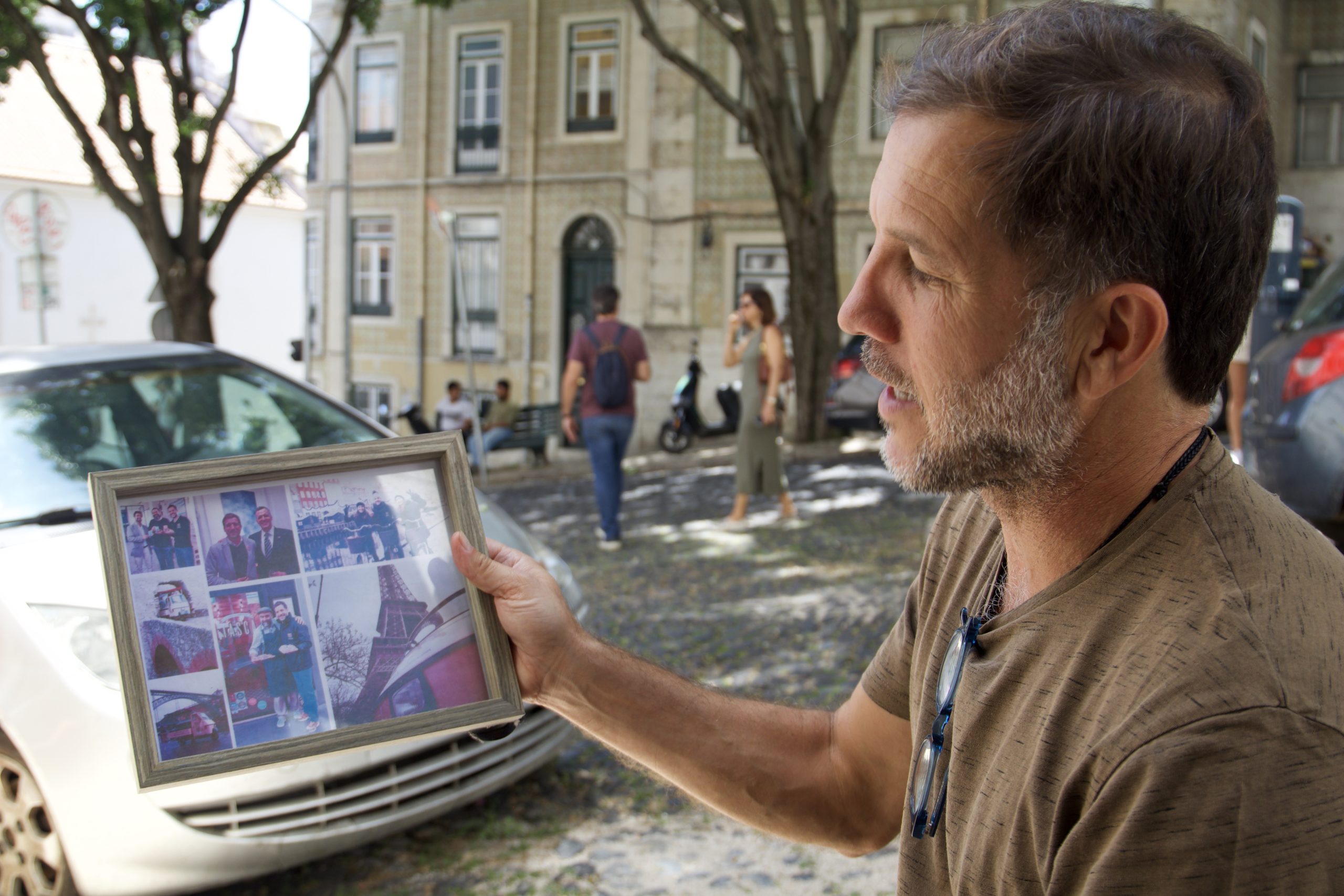
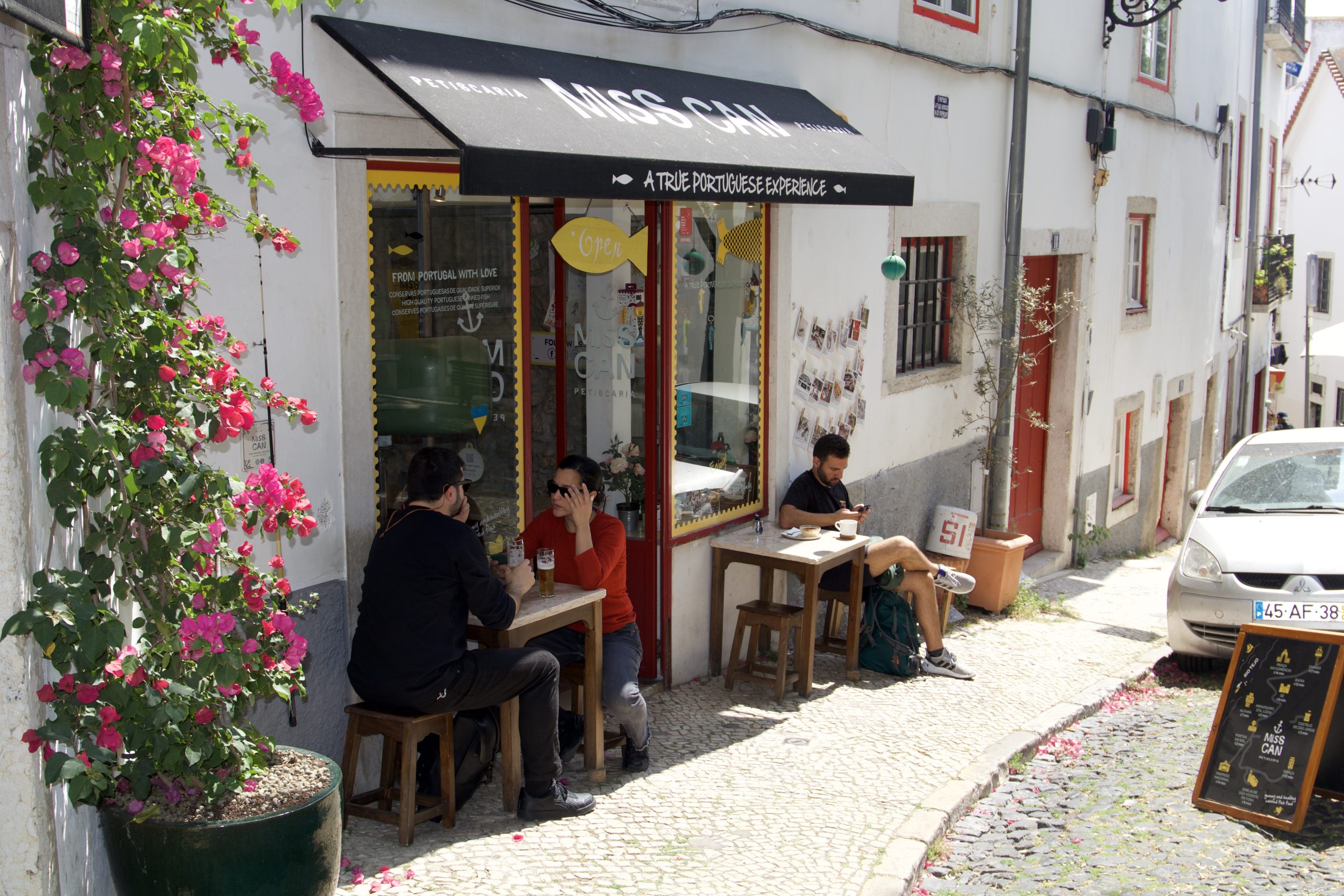
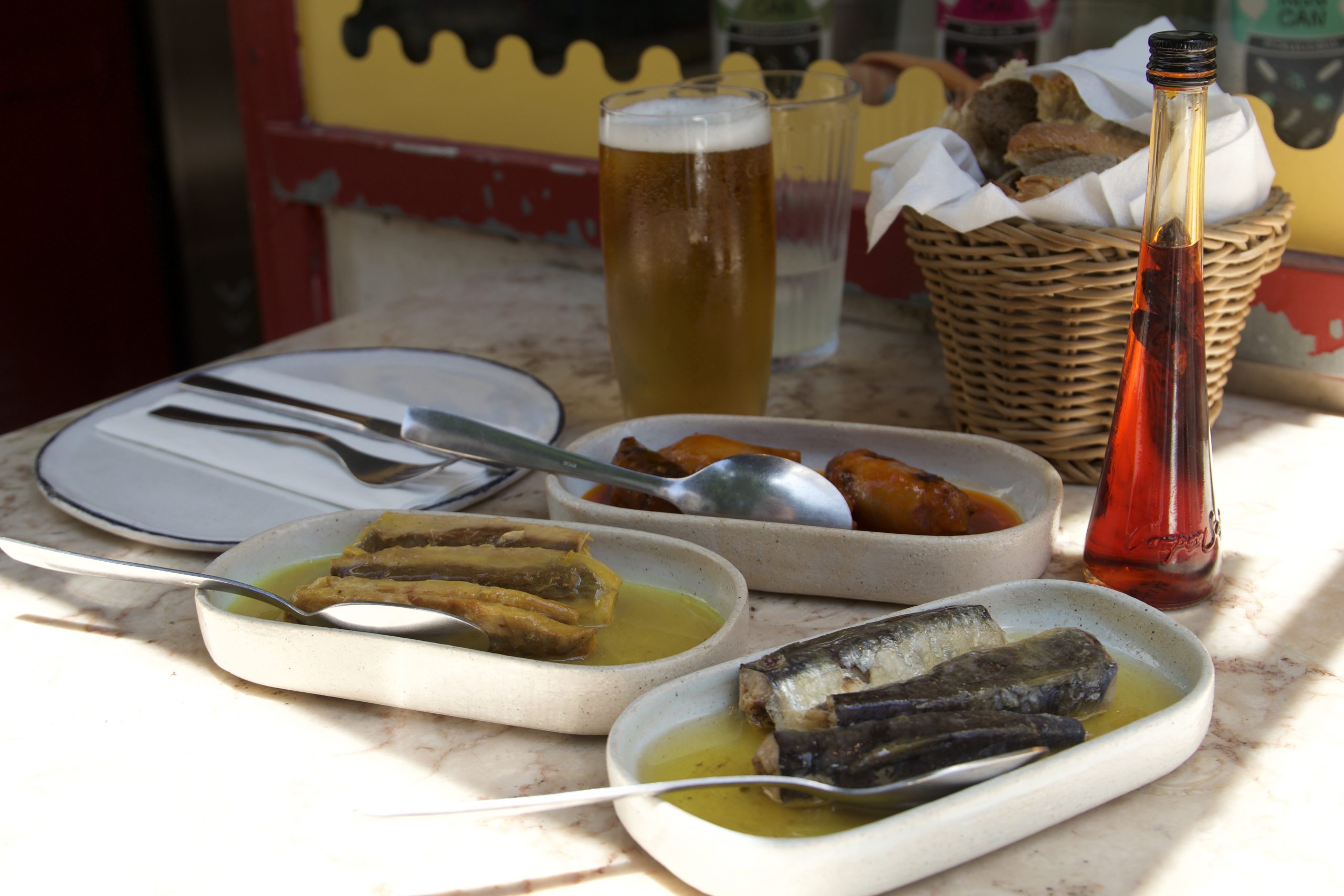
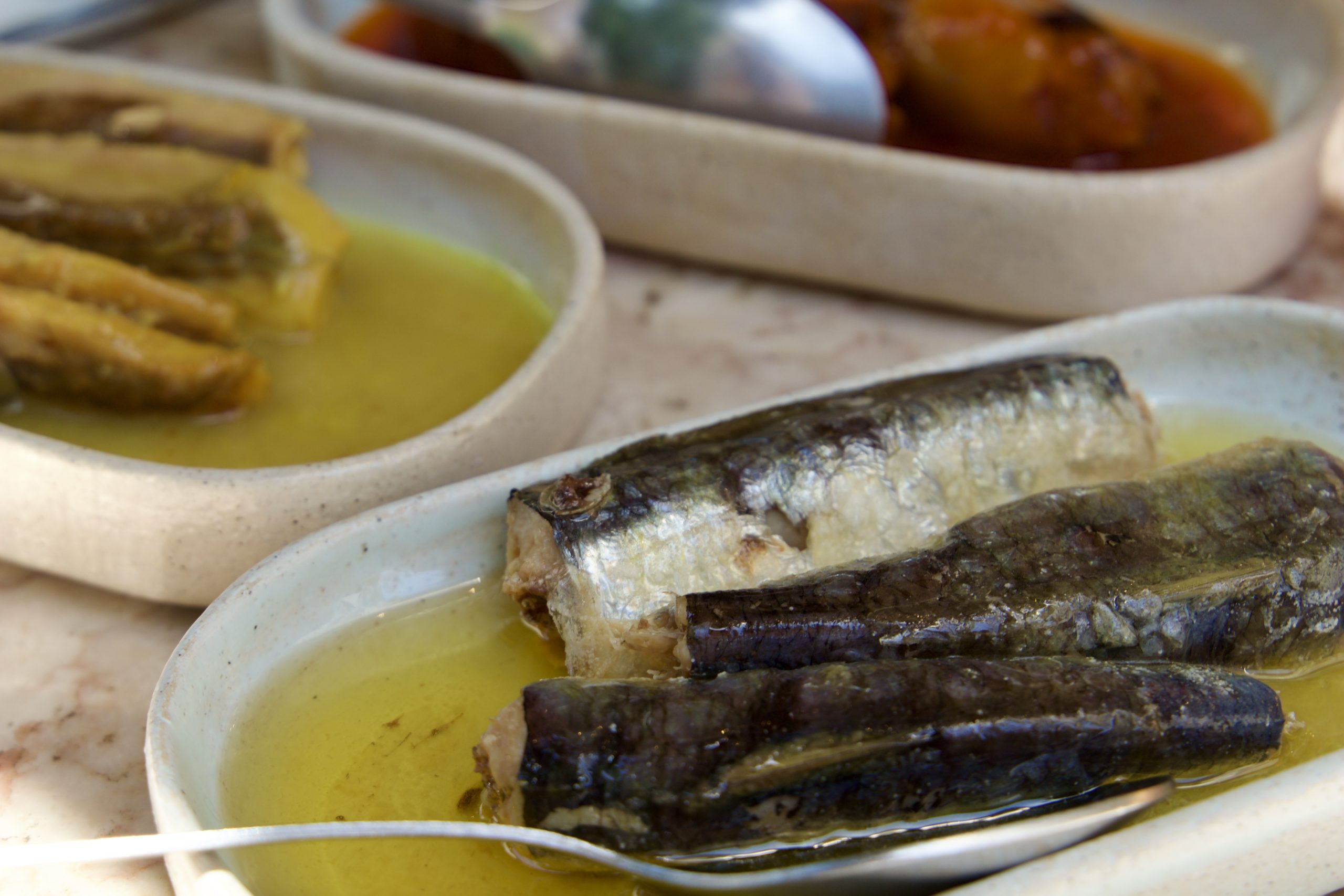
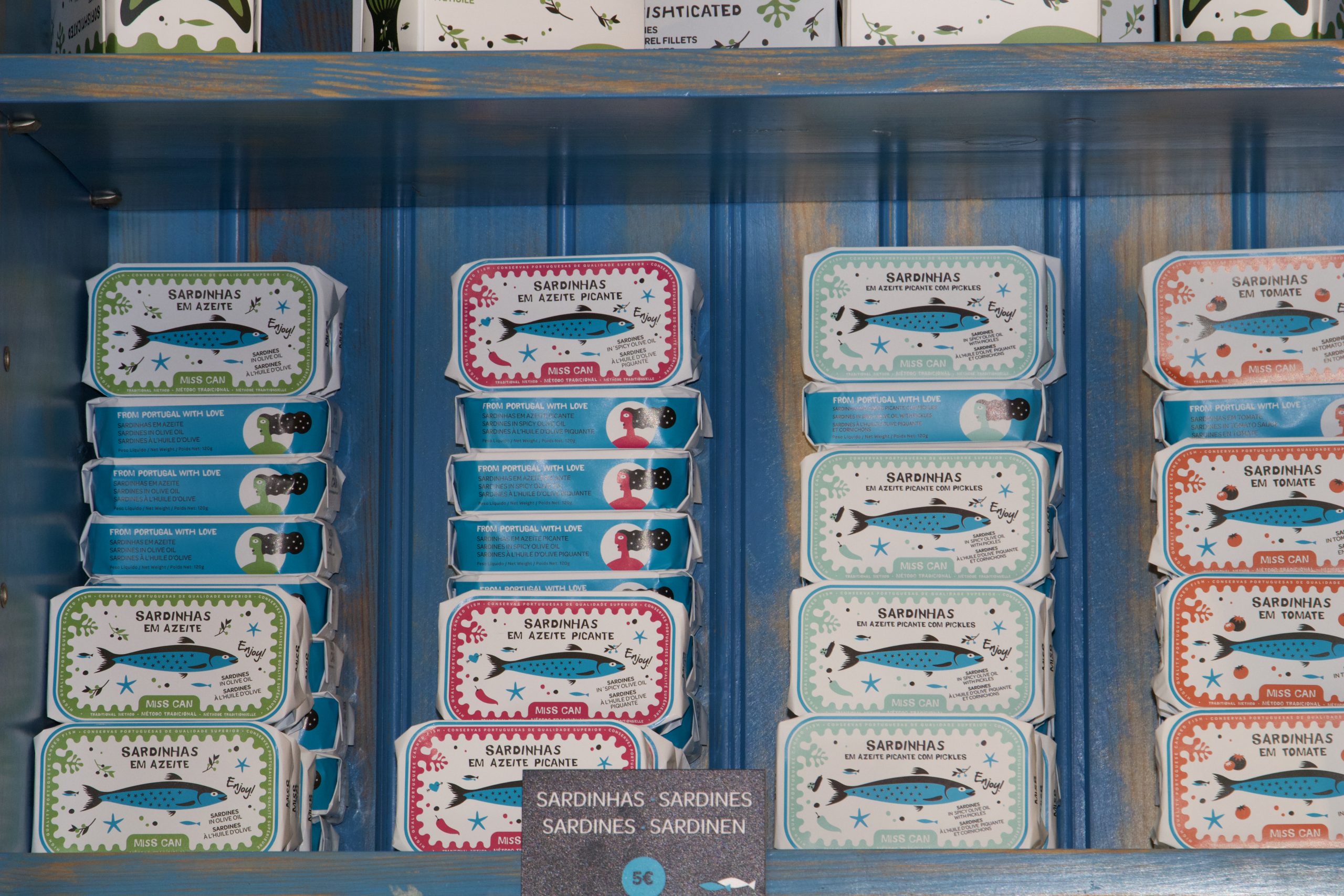
Tiago’s grandfather was one of thousands of people working in the canning industry in Portugal during the early 1900´s. In 1912 Portugal was the world leading export of canned fish and during World War 1 the need for canned fish exploded even further. Naturally, with him now being part of the industry himself, a crisis such as the sardines nearly disappearing would affect his business directly. He explains that one thing they do at Miss Can to make sure the fish is as sustainable as possible, is to only use fresh fish and to produce their cans after the demand by their customers. This to not add to the overfishing and producing. Looking back at the last decade he is not too optimistic that enough has been done regarding the crisis.
“I think there is a need for stricter rules so that we can enjoy the fish for years to come. The crisis is not over yet, and we should be aware of that” Tiago says.
A new crisis lurking
The Iberian sardine is a key player in the marine ecosystem of Portugal and the surrounding waters explains Rita Sá, marine biologist and coordinator of the Oceans and Fisheries practice at Associação Natureza Portugal (ANP/WWF). The Portuguese waters has been shown to have the perfect conditions for sardines of not being too hot and containing lots of plankton that they eat. Thriving in the environment and having the capability to multiply quickly, summoned these abundances of the species.“The industry acts as a company and should therefore manage their fishing as such. And just like a company there should always be a risk assessment. The sardines have a high price in the sea as well.” Rita Sá says.
The stricter measurements made by the EU and Portuguese government such as limiting the fishing season with less catch days and quantities per vessel seem to have had a good effect. The Portuguese Institute of the Sea and the Atmosphere (IPMA) announced that between 2019 and 2020 the sardines increased with 110,000 tons, around 66 percent. Exciting growth but with the fish slowly getting back on track stats, provided by Statista, also shows that the fishing of the sardine is also increasing once again with 9,2 tons in 2019 compared to 26,7 tons in 2021. However, Rita Sá points to understanding the environmental changes going on in the waters as the focus now to prevent a similar crisis to occur.“It was hard to adjust to the new regulations but now people are willing to cooperate going forward. When it comes to environmental issues, we still don’t know enough on how to prevent that on effecting the stock.”
Global warming has a huge effect on the eco-system in the oceans. The sardines being a species sensitive to changes, has been seen starting to look for cooler waters further north around the British Isles. The warmer waters also boost the population of the similar but larger mackerel which loves to feast on sardine eggs which has been bad for the sardines. With the warming of the seas being in constant process and not enough research is being done on the issue, Rita Sá still seems to have a surprisingly positive outlook on the future of the sardines. ”Now it is not so much of a crisis. In the upcoming years we will have them here, but it is hard to tell how the future will look. Everyone knows it [a crisis] can happen again, question is when?”
A day at the market
”Bom día Bruno, do you have sardines? No, okay. Paula, do you have sardines? No, she sold them all. Some people buy more than five kilos per person”, says Paula Cunha, administer at the Mercado de Arrois. She quickly runs between various sellers stands at the market looking for sardines. The air in vast hexagonal market is cool. Scents of fresh fruit, baked goods, and fish all mix. “We provide a lot of sardines to different restaurants, and they come as soon as we open with big boxes and fill them to the brim”, she says.
"When there is a party, there is no crisis."
At one of the stands is a woman all dressed in blue with bright pink gloves that she uses to dig into a styrofoam container. Her name is Dália, she sells fish at the market that her family fishes. The box contains hundreds of small silver-gleaming sardines. “These are small but off-season you would pay around three euro per kilo for the big sardines. Now when the sardine season approaches and during the party one big sardine will cost two euro each”, Dália says.
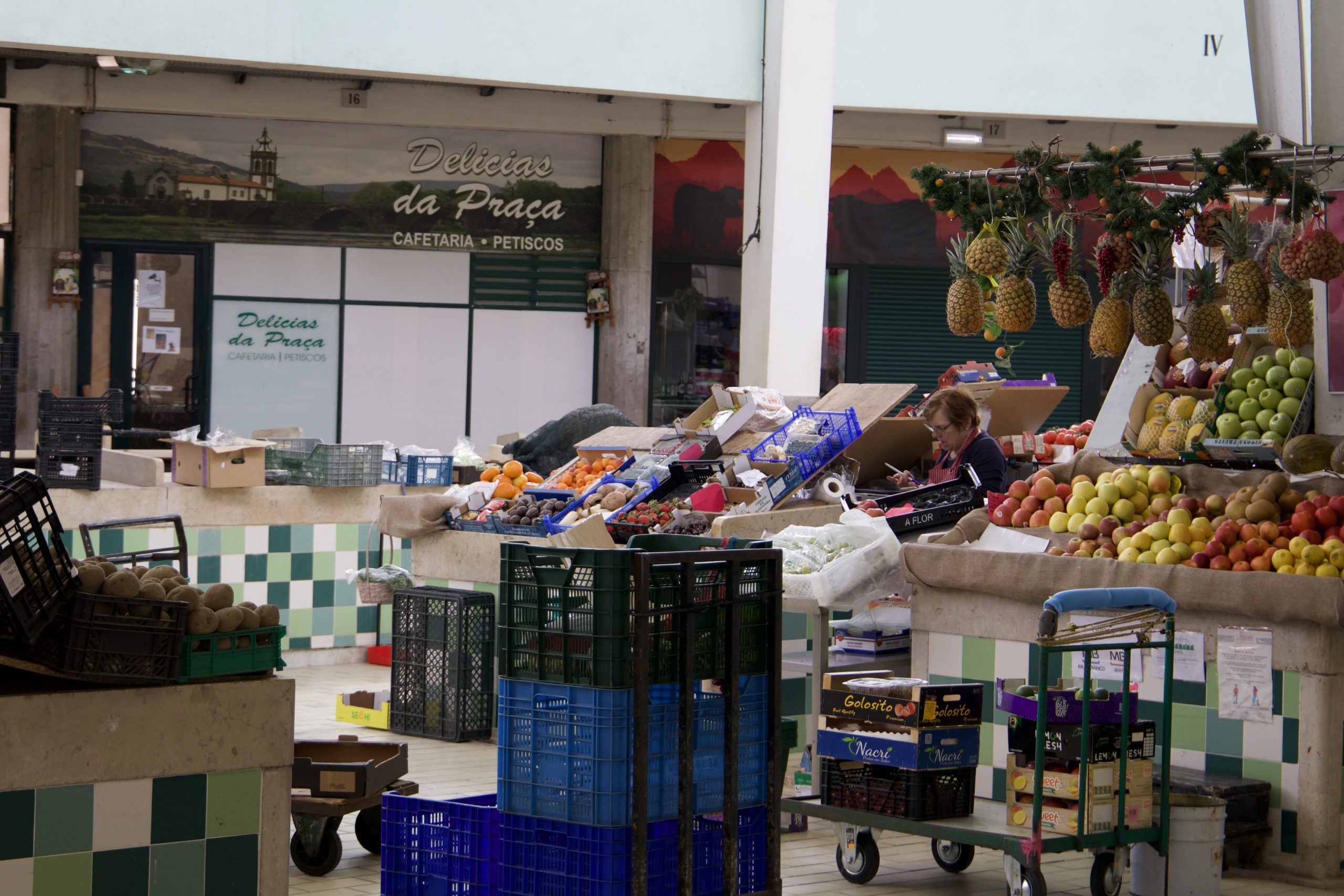
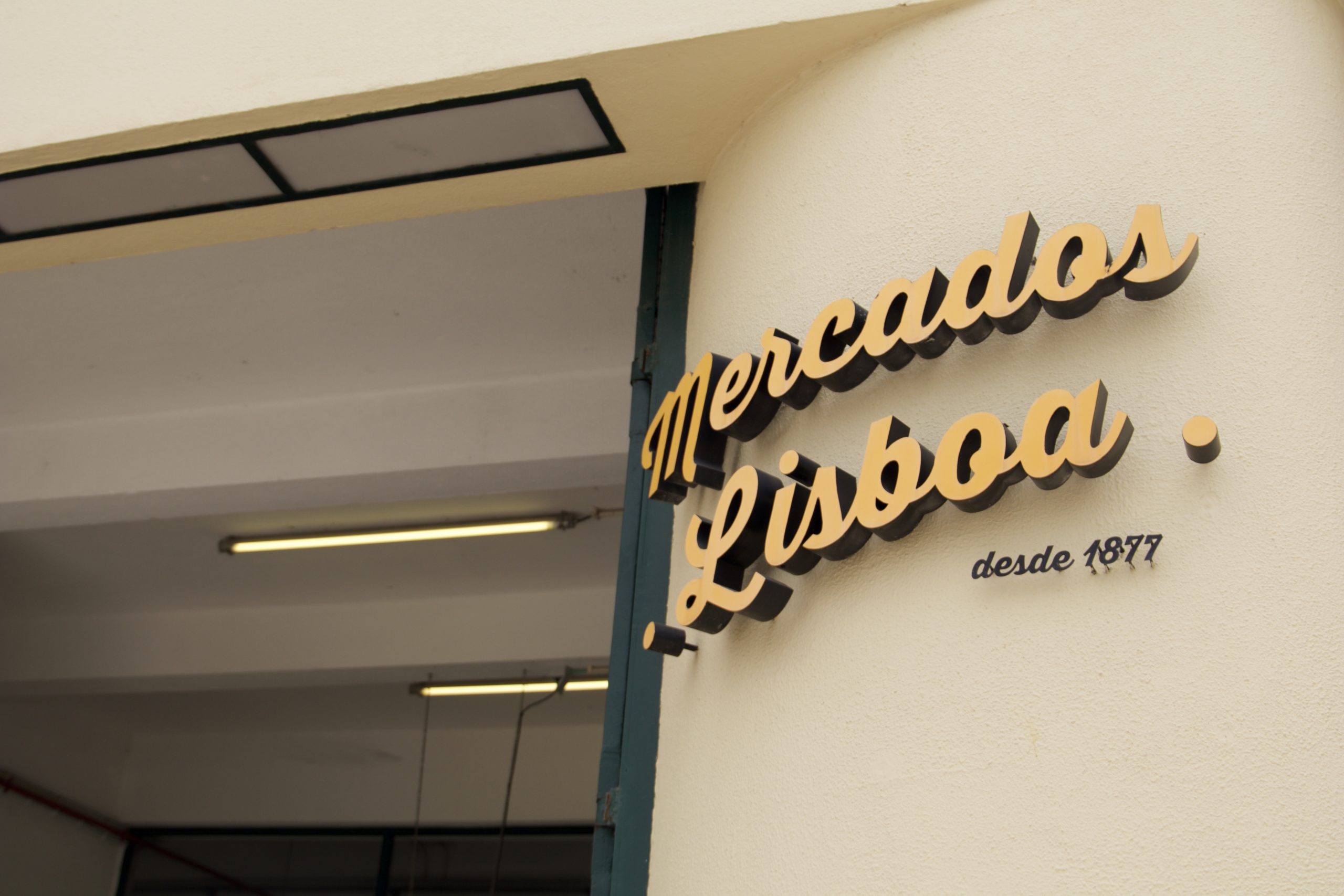
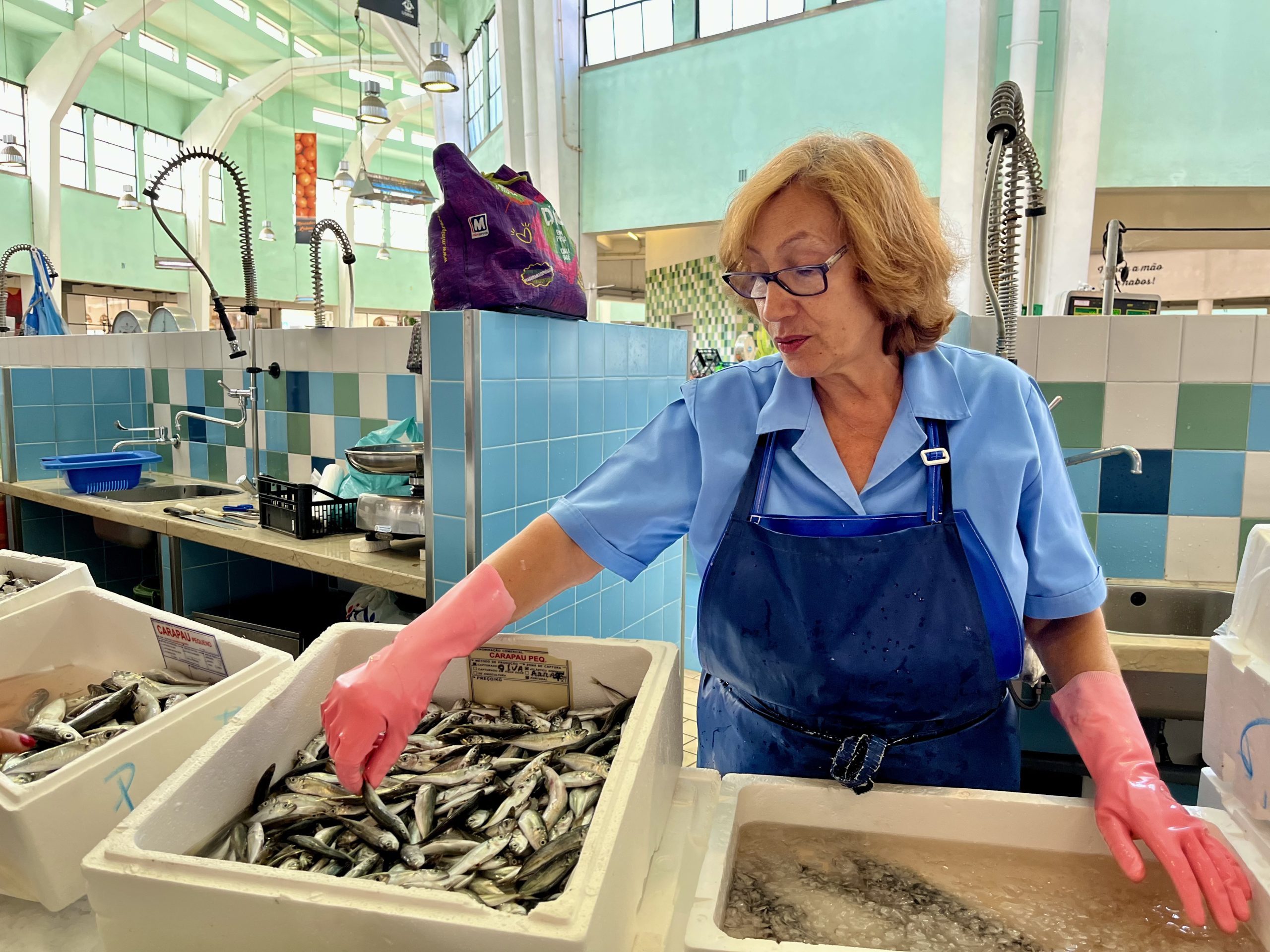
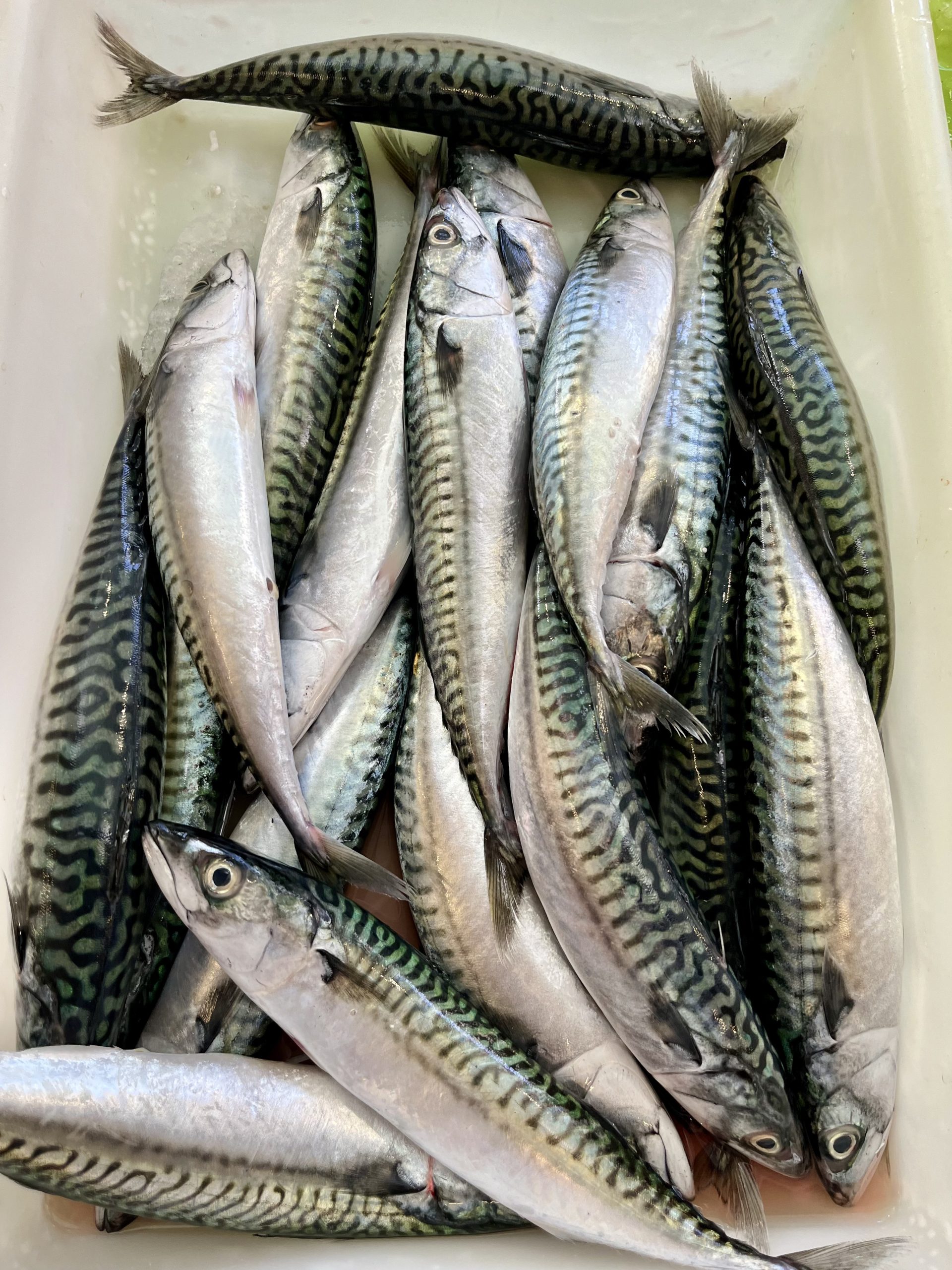
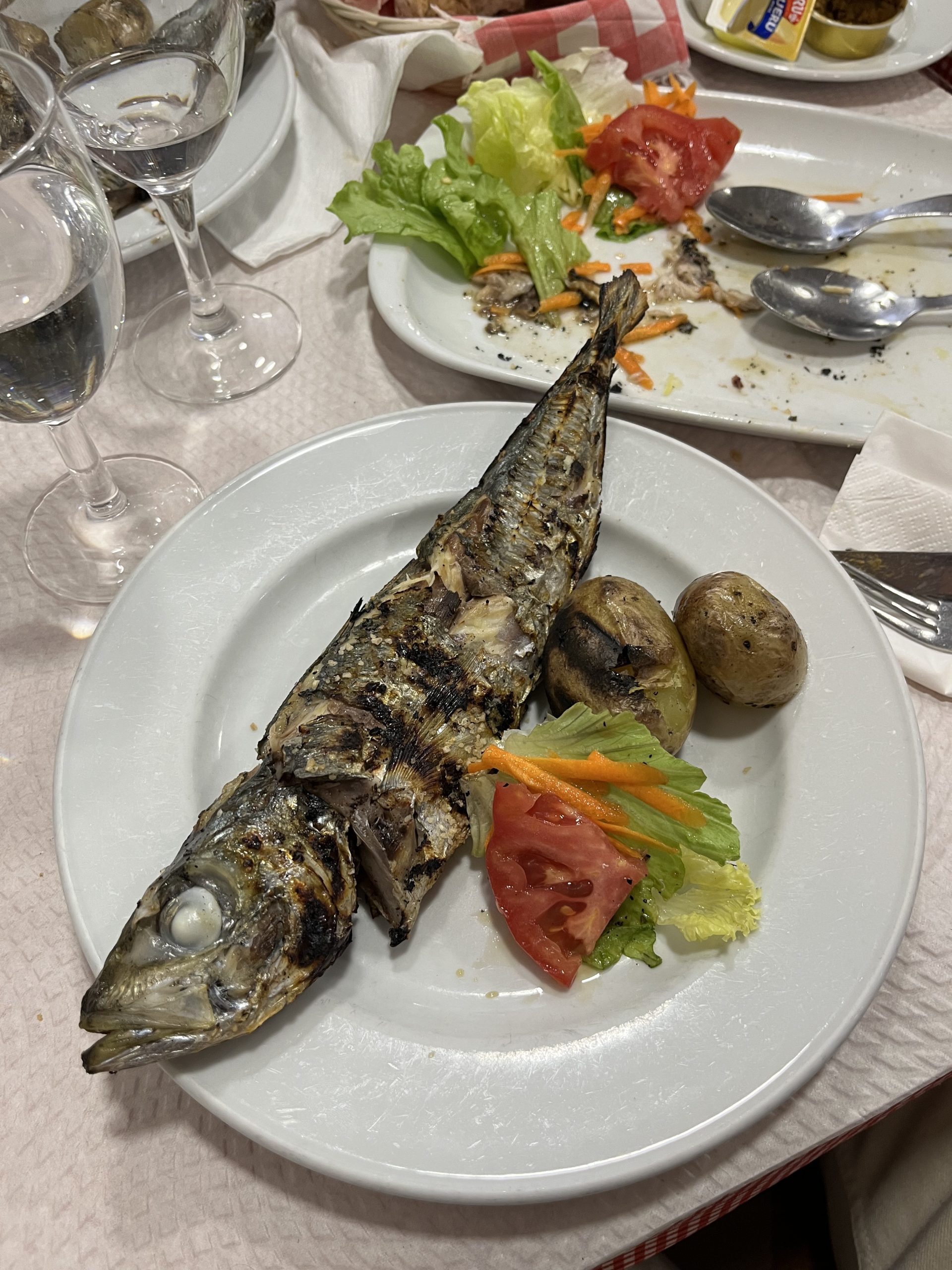
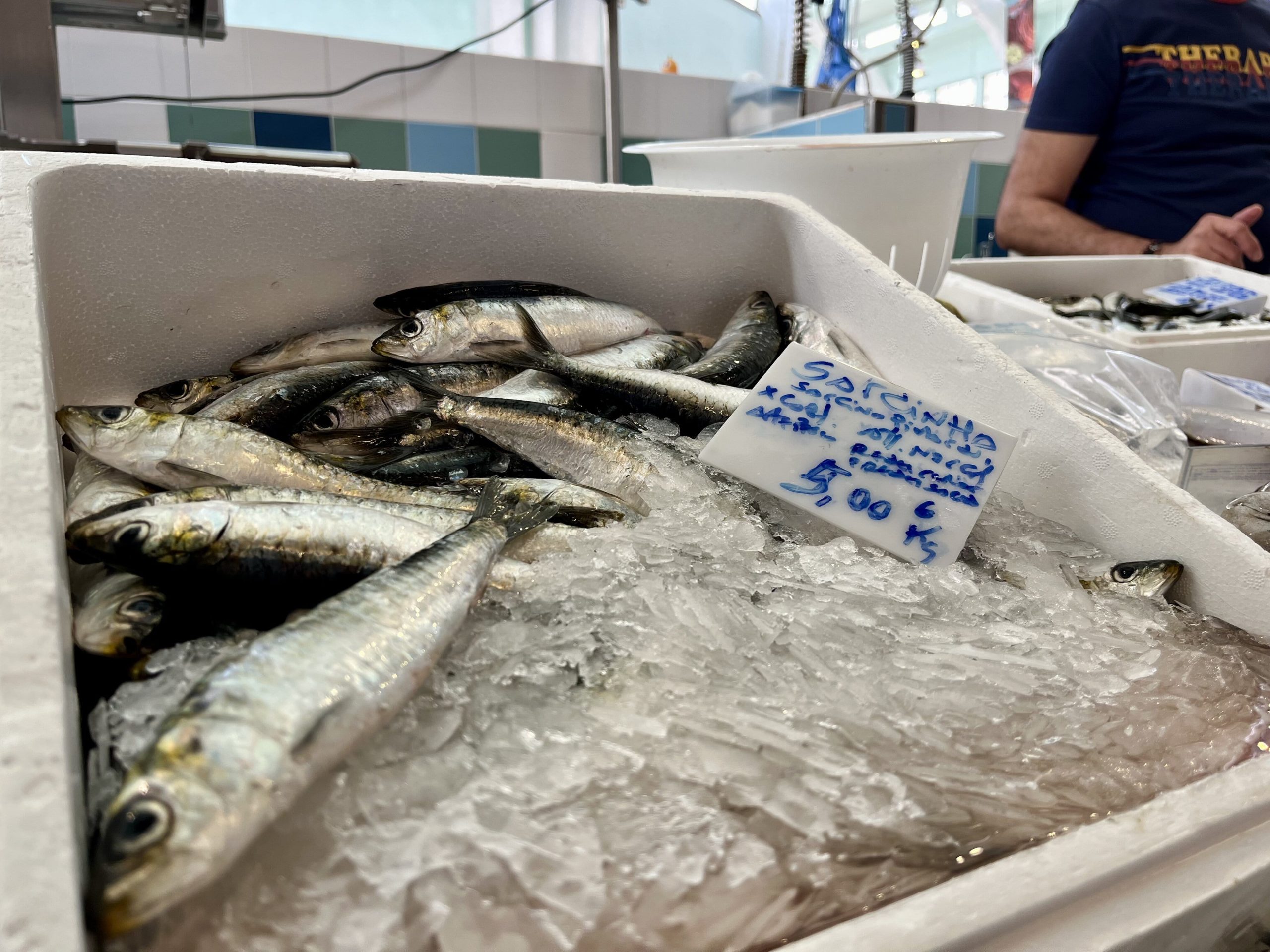
She explains that when the fishing regulations were put into effect it became hard for fishermen and fish sellers to have ends meet. As the fishing season got shorter, the sardines got less they were forced to look at other fish as a type of backup. As marine biologist Rita Sá mentioned before the changing climate made another fish flourish, the mackerel. Alike in many ways to the sardines, both looking and having similar nutritious benefits as the queen, as well as being served in the same ways, some would argue that it is a perfect substitute. Dália does not entirely agree. The bond with the sardine is a tough one to replace. “We have mackerel all year round so it is way more accessible. However, sardines are fish for ordinary people, and mackerel is more expensive and less tasty” she says.
She expects to have all sardines gone within the next hours as restaurants and people keep coming to buy to stock up for the big festival. When asked if she as a seller fears a new crisis considering people seem to buy sardines again without caution, she lets out a big laugh and shakes her head. “When there is a party, there is no crisis”, she says as she turns to help a new customer.
The destiny of a culture
The preparations for Festas dos Santos Populares can be seen throughout the whole city. But nowhere is it as striking as in the city’s oldest district, Alfama. The ancient neighborhood’s narrow streets and staircases are decorated to the brim with streamers and tinsels in every color imaginable. Stages are being built and big grills are being brought out in anticipations for the thousands of sardines that are going to be prepared there. It is a remarkable district bustling with life, but as day turns to night, the sounds of people and traffic fades into the melancholic tones of music.
On top of a hill is the family-owned fado-restaurant Restaurante Cervejaria St André. Graça Guerra, the owner of the restaurant, swiftly serves plate after plate with grilled sardines to the spellbound guests as they listen to the musicians pouring every bit of emotion into the heartfelt songs being performed. The music being performed is called fado, which translates to destiny. ”The songs are about our destiny as people. It is a traditional Portuguese genre about melancholic love and faith”, she says with a smile as she puts down one more plate of the grilled delicacy. The plate contains four grilled sardines together with some potatoes and fresh vegetables, the most classic way of eating the fish.
The colorful tinsels have made its way into the picturesque restaurant’s interior and the walls are plastered with sardine signs. Graça and her family are as excited for the festivities as everyone else, especially since this year they will be able to properly sell the sardines again. “Now it is quite easy to get sardines again. But just a couple of years ago there were barely any sardines at all. Thanks to the regulations we can now enjoy the sardines in the summer” she says.
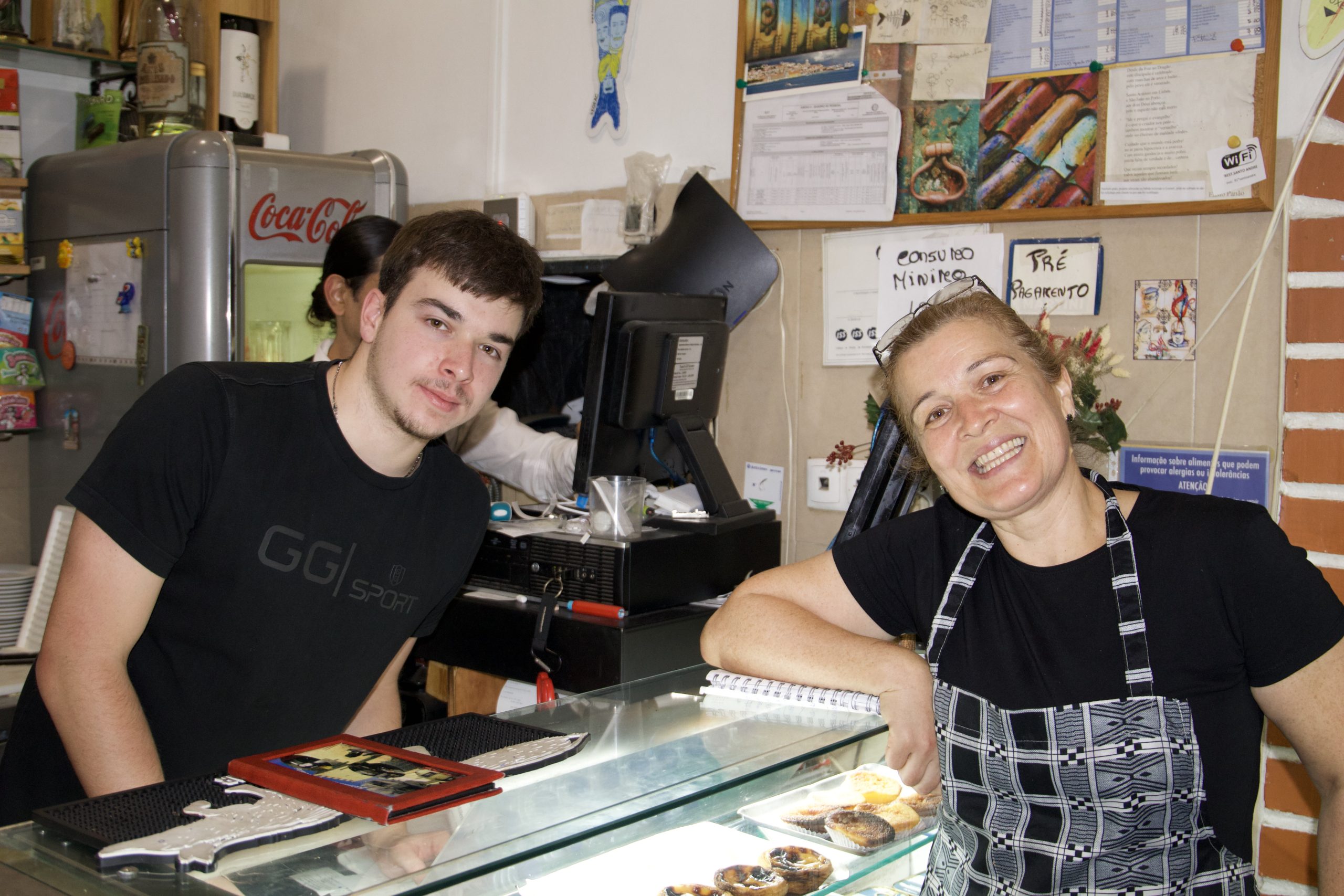
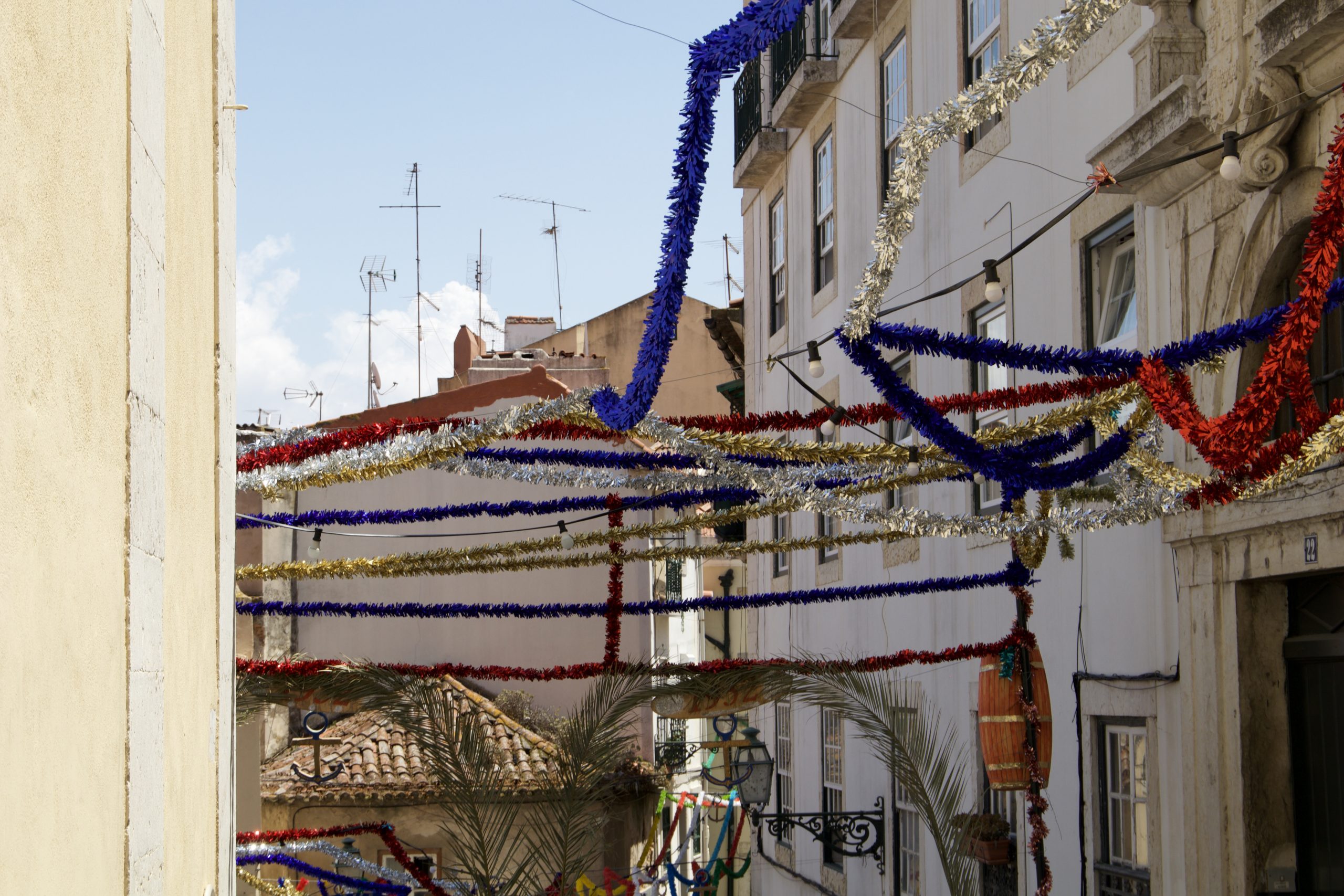
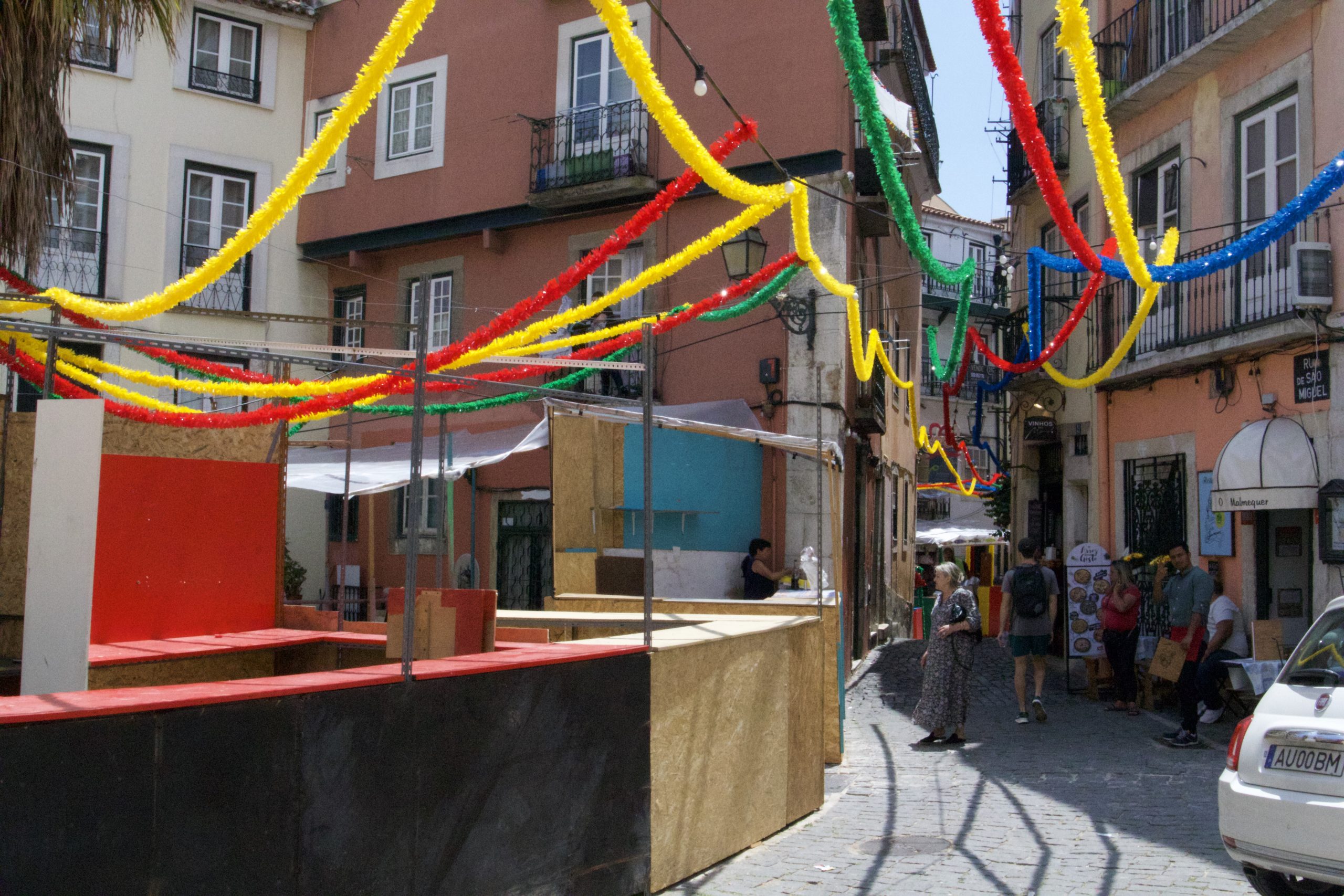
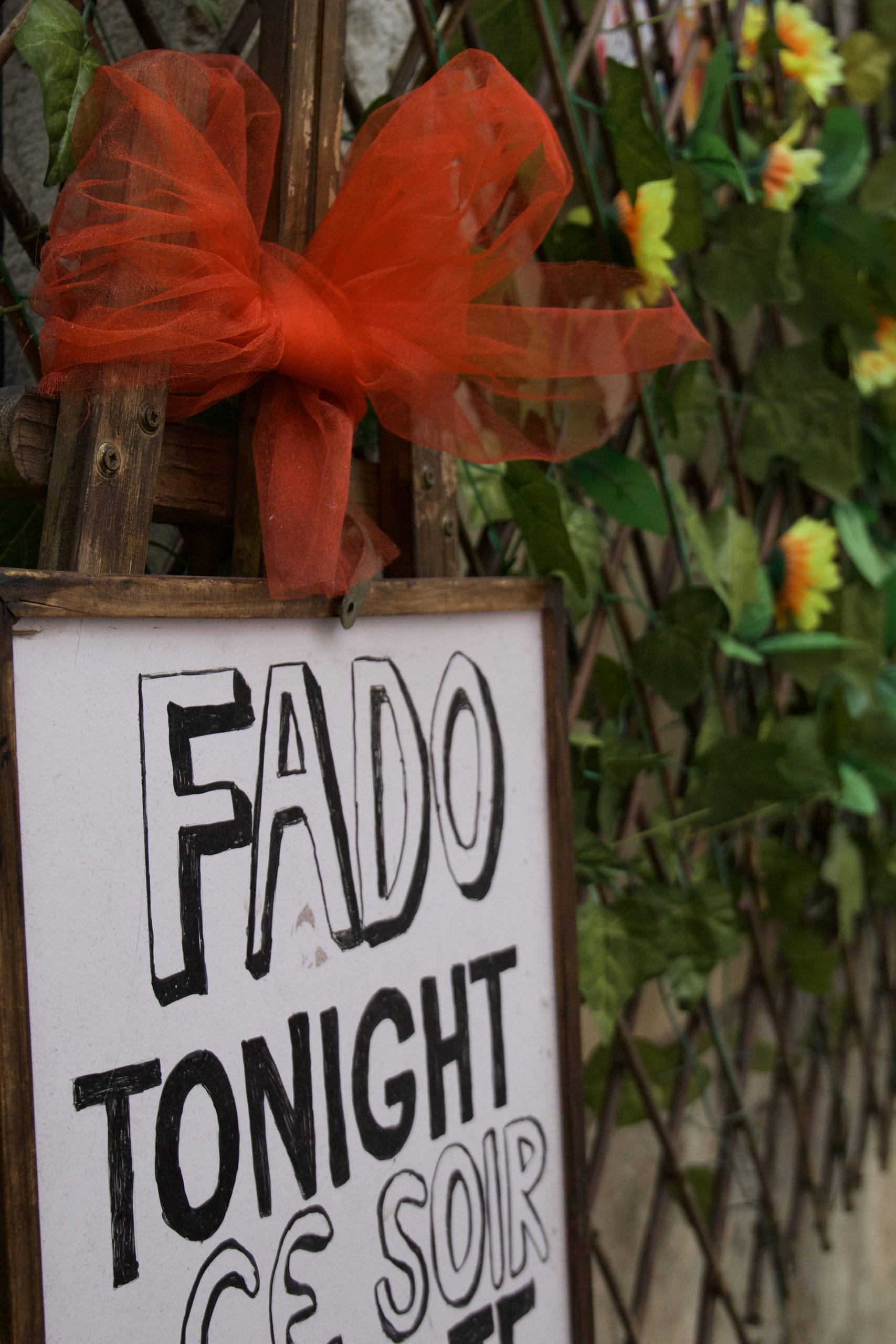
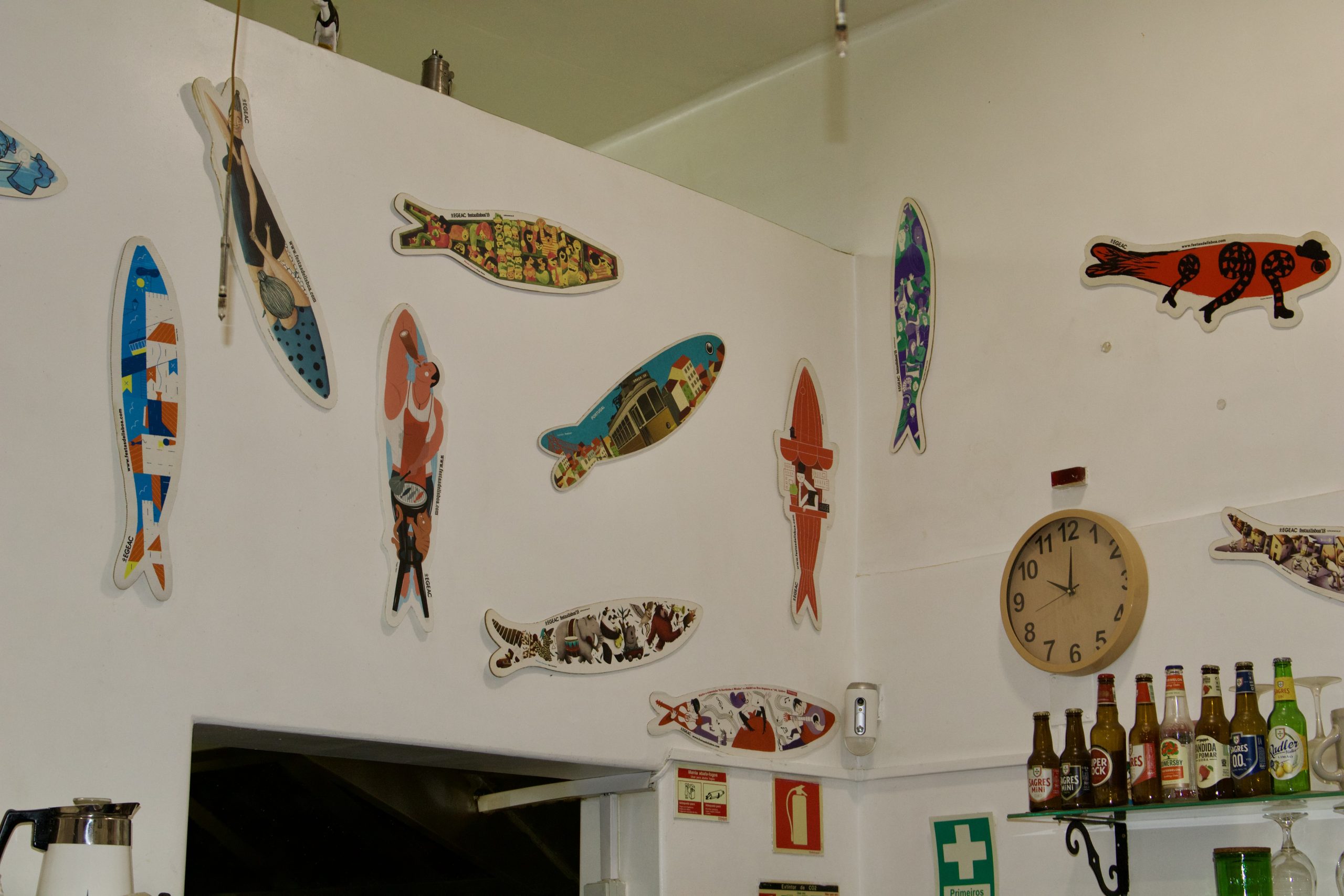
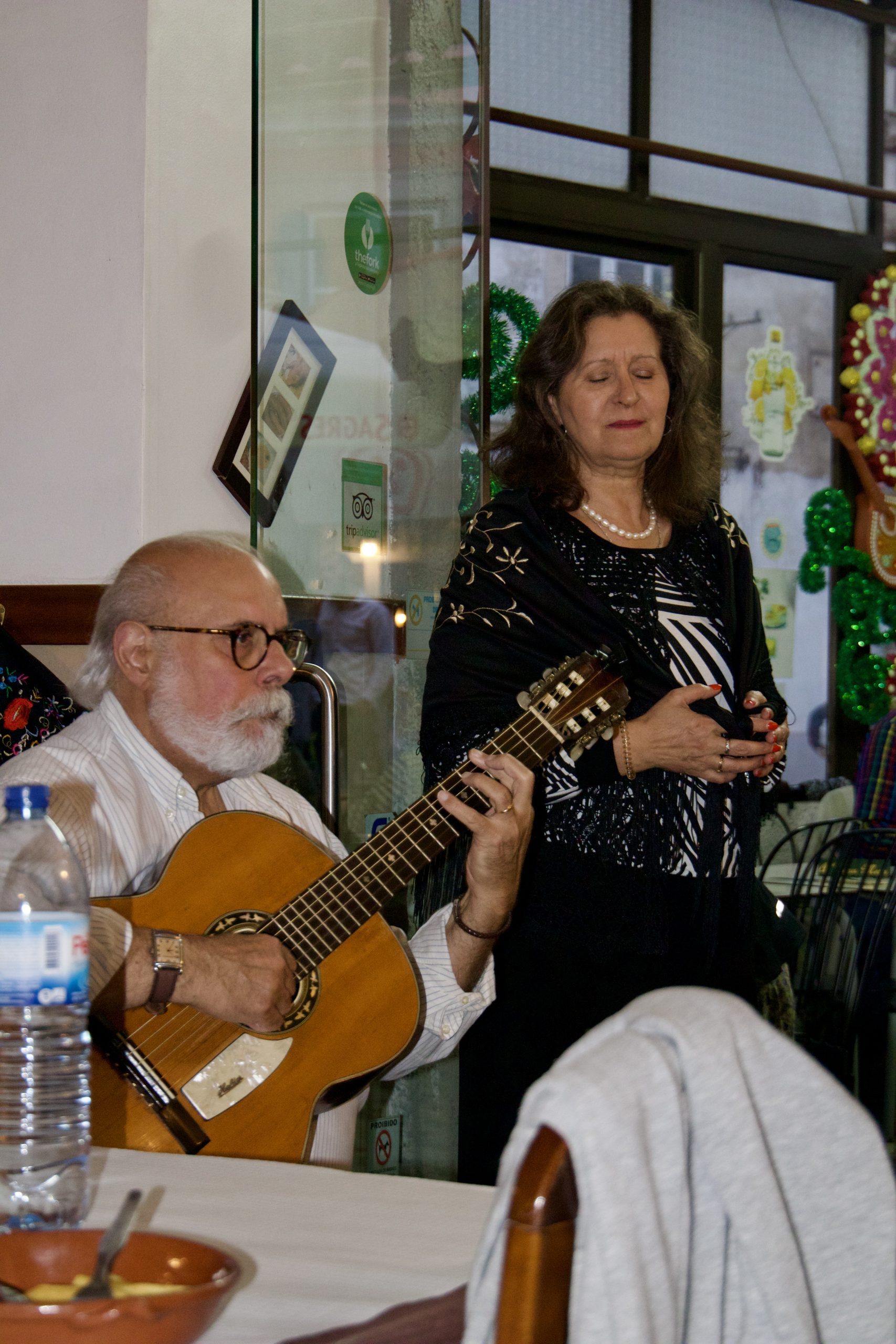
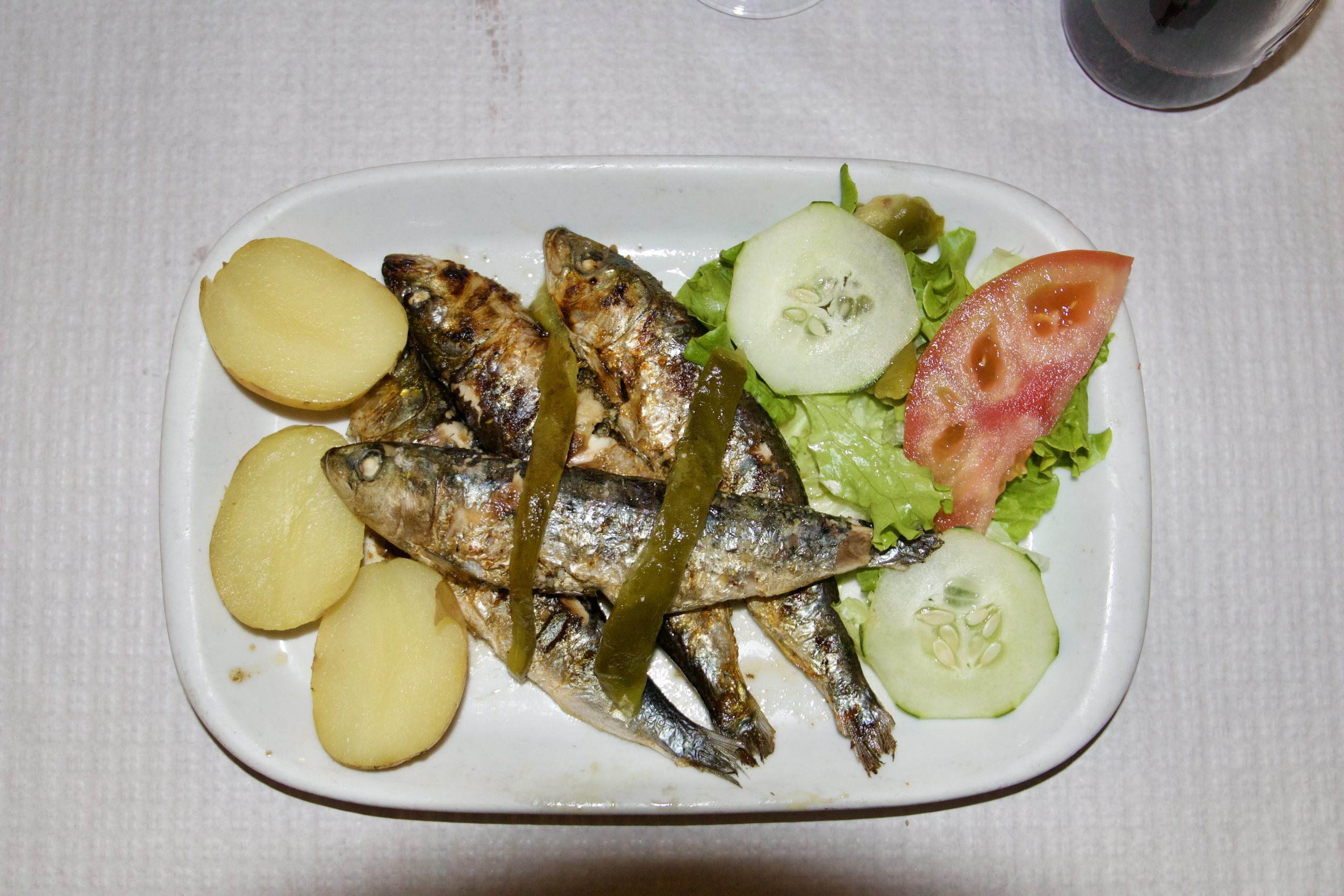
Much like Tiago Soares Ribiero, she also agrees that it is necessary to have regulations and that people should not get too comfortable with the current state. “I think it is important to slow down the consumption even now, although I think it is not only up to Portugal since other countries also import a lot of our fish. We should keep more here.”
Applause breaks out as the fado singer belts out her final note of the night. Wine classes are chiming, and people are laughing as they enjoy their food. Just before Graça gets back to work she stops to reflect on the possibility of a crisis occurring again. “That would be very bad. The sardines are our fado. Not only in Lisbon but for the whole country. We must have them for our culture”, she says with a concerned look on her face as she gathers some plates before heading back into the kitchen.
"The sardines are our fado."
The bond is strong, and people don’t want to give up on the sardine for a reason. They know there probably should be more done to protect them, whilst they also want to fully be able to enjoy the fish. Follow the head or follow the heart? It is almost like a complicated love story. Someone who knows the best thing would be to hold back a little, but can’t keep themselves from doing so.
